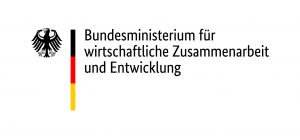
- This event has passed.
Online Seminar: The global recession and debt crises in the CEE region: Who has to bear the costs?
Das Seminar ist Teil unseres Themenschwerpunkts Osteuropa/GUS und wird in Kooperation mit dem Center for Ecology and Sustainable Development (CEKOR, Serbien) organisiert. Die Veranstaltung findet auf Englisch statt.
In cooperation with the Center for Ecology and Sustainable Development (CEKOR, Serbia). The seminar will be held in English.
Invitation
Debt crises are not just a problem for large debtor countries in Latin America or the poorest countries in Africa. Countries in Central and Eastern Europe are also affected by over-indebtedness. After the collapse of real socialism in the late 1980s, many countries in the region ran into payment difficulties. Now in 2020, 15 out of 18 countries in the region are critically indebted. The main risks come from borrowing abroad. The International Monetary Fund (IMF) has also always played a central role, from the first shock liberalisation in the 1990s after the collapse of the Eastern Bloc to the current austerity programme.
The economic impact of the coronavirus pandemic is exacerbating existing crises and increasing inequality in many developing countries. Many countries are struggling with weak health systems due to previous austerity measures. Because of their income, most countries in Eastern Europe/CIS are excluded from debt relief measures that the G20 and the IMF have created for developing countries to deal with the COVID-19 pandemic.
In the seminar, we would like to look at different country cases from the region to better understand the debt situation in the region, and to answer the following questions:
- Pre-COVID debt: What are the most important reasons for debt in the region? Was the region in a debt crisis before the coronavirus outbreak?
- In what ways does the corona-induced global recession affect the region?
- What strategies and experiences do the countries in the region have in order to deal with the recession? How should these be evaluated?
- How are civil societies in the region working on this topic? What are their demands?
- What starting points are there for partnership-based collaboration?
Speakers
Daniyar Serikov, Economist, Kazakhstan
Irina Khantadze, Center for Training and Consultancy, Georgia
Zvezdan Kalmar, Center for Ecology and Sustainable Development (CEKOR), Serbia
Registration
Privacy Policy
erlassjahr.de uses the software of the US company www.Zoom.us for this online seminar. Zoom’s technical infrastructure is stored on US servers. erlassjahr.de does not store any data from online seminar participants in the zoom system. Following the principle of data economy, it is also possible to join the online seminar with an altered username. It is always possible to ask questions in the Q&A tool in an anonymous way.
Gefördert durch ENGAGEMENT GLOBAL mit Mitteln des
Diese Veranstaltung wird mit finanzieller Unterstützung der Europäischen Union realisiert. Der Inhalt unterliegt der Eigenverantwortung von Citizens for Financial Justice und erlassjahr.de und spiegelt nicht unbedingt die Stellung der Europäischen Union wider.


